03 Oct2022
By Brooke Evans
 AACTE’s Committee on Global Diversity is proud to host the University of Missouri-St Louis, College of Education, recipient of the 2022 AACTE Best Practice Award in Support of Global & International Perspectives. This award, sponsored by AACTE’s Committee on Global Diversity, recognizes exemplary practice in the intercultural, global, cross-cultural, and international arenas and is presented each year at AACTE’s Annual Meeting.
AACTE’s Committee on Global Diversity is proud to host the University of Missouri-St Louis, College of Education, recipient of the 2022 AACTE Best Practice Award in Support of Global & International Perspectives. This award, sponsored by AACTE’s Committee on Global Diversity, recognizes exemplary practice in the intercultural, global, cross-cultural, and international arenas and is presented each year at AACTE’s Annual Meeting.
The College of Education at the University of Missouri-St. Louis launched a year-long effort to enhance the internationalizing of teacher preparation programs. The main objectives were to initiate a professional learning community centered on globally competent teaching, integrate global perspectives in teacher education programs, create and share globally infused curricula, and strengthen international partnerships. The project was a comprehensive approach targeting faculty, staff, and students. In this webinar, they will share four of the initiatives from their year.=
On Thursday, October 6, join AACTE and the Committee on Global Diversity in welcoming the University of Missouri, St Louis College of Education faculty and staff as they share their experience with AACTE membership. Register today.
26 Sep2022
By Weade James
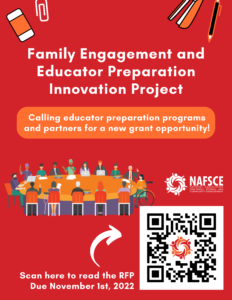 The National Association for Family, School, and Community Engagement (NAFSCE) is seeking proposals from educator preparation programs and their school and community partners to take part in the Family Engagement Educator Preparation Innovation Project.
The National Association for Family, School, and Community Engagement (NAFSCE) is seeking proposals from educator preparation programs and their school and community partners to take part in the Family Engagement Educator Preparation Innovation Project.
23 Sep2022
By U.S. Department of Education
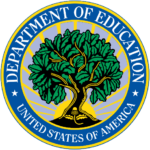 The U.S. Department of Education has announced new awards to help recruit, prepare, develop, and retain a strong, effective and diverse teacher workforce for classrooms across the country through the Teacher Quality Partnership (TQP) grant program. This year’s investment includes 22 new five-year grants totaling $24.8 million through its TQP program. The award recipients represent IHEs and national nonprofits, including three HBCUs and one MSI.
The U.S. Department of Education has announced new awards to help recruit, prepare, develop, and retain a strong, effective and diverse teacher workforce for classrooms across the country through the Teacher Quality Partnership (TQP) grant program. This year’s investment includes 22 new five-year grants totaling $24.8 million through its TQP program. The award recipients represent IHEs and national nonprofits, including three HBCUs and one MSI.
23 Sep2022
University will be only UNC System institution to operate two lab school programs
By Anna Oakes
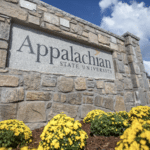
Courtesy of Marie Freeman
Appalachian State University is partnering with Elkin City Schools to open the university’s second laboratory school aimed at enhancing student education, improving outcomes and providing high-quality teacher and principal training.
Under the plan — which was developed in collaboration with Elkin City Schools leaders and approved by the Elkin City Schools Board of Education on Dec. 13, 2021 — a lab school will open at Elkin Elementary School in August. The “school-within-a-school” model will serve approximately 100 students in second through fourth grades.
23 Sep2022
As higher ed enrollment lags, colleges try to make teacher preparation more enticing, sustainable to ward off local shortages
By Marianna McMurdock
This story was produced by The 74, a non-profit, independent news organization focused on education in America.
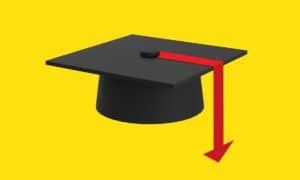
The pandemic has exacerbated a troubling national trend: Fewer potential teachers are entering the profession.
Nearly every state lost a large proportion of teaching candidates between 2010 and 2018, according to a Center for American Progress report — and the pandemic has further strained traditional colleges and universities programs, many of which face declining enrollment and were forced to recently cut staff.
15 Sep2022
By Karen B. Cotton
This article was originally published by Prairie View A&M University.
The teacher population in Texas does not reflect its student population. Beverly Sande, Ph.D., plans to change that statistic with $300,000 in funding from Texas Tech University–Texas Education Agency in collaboration with the University-School Partnerships for the Renewal of Educator Preparation (US PREP) National Center. The award will position Prairie View A&M University (PVAMU) to lead innovative efforts to increase diversity among the number of teachers.
15 Sep2022
By Shea Kerkhoff

The AACTE Committee on Global Diversity is hosting Internationalizing Education in Teacher Preparation, an October 6 webinar featuring the University of Missouri, St Louis College of Education faculty and staff, including Shea Kerkhoff. Below Kerkhoff outlines four initiatives they implemented to integrate a global perspective into its educator preparations programs.
Classrooms in St. Louis, like most of the country, are globally diverse and connected. Realizing the importance of including global perspectives and fostering international connections, the College of Education at the University of Missouri – St. Louis launched a year-long effort to enhance the internationalizing of our teacher preparation programs. The main objectives were to initiate a professional learning community centered on globally competent teaching, integrate global perspectives in our teacher education programs, create and share globally infused curricula, and strengthen international partnerships. The project was a comprehensive approach targeting faculty, staff, and students. Here we will share four of the initiatives from our year.
15 Sep2022
In 74 Interview, author Leslie T. Fenwick said the effects were so damaging that ‘the nation’s public schools still have not recovered’
By Greg Toppo
This story was produced by The 74, a non-profit, independent news organization focused on education in America.
 American students have attended school for nearly 70 years under the U.S. Supreme Court’s historic 1954 Brown v. Board of Education decision, which outlawed racial segregation in public schools. But a new book uncovers a little-known by-product of the case: Educators and policymakers in at least 17 states that operated separate “dual systems” of schools defied the spirit of Brown by closing schools that served Black students and demoting or firing an estimated 100,000 highly credentialed Black principals and teachers.
American students have attended school for nearly 70 years under the U.S. Supreme Court’s historic 1954 Brown v. Board of Education decision, which outlawed racial segregation in public schools. But a new book uncovers a little-known by-product of the case: Educators and policymakers in at least 17 states that operated separate “dual systems” of schools defied the spirit of Brown by closing schools that served Black students and demoting or firing an estimated 100,000 highly credentialed Black principals and teachers.
In Jim Crow’s Pink Slip, scholar Leslie T. Fenwick, tapping seldom-seen transcripts from a series of 1971 U.S. Senate hearings on the topic, writes that the loss of Black educators post-Brown was “the most significant brain drain from the U.S. public education system that the nation has ever seen. It was so pervasive and destabilizing that, even more than half-century later, the nation’s public schools still have not recovered.”
13 Sep2022
By Beth Kubitskey
For 30 years, I have been involved in teaching and teacher education as a graduate student, lecturer, professional development facilitator, teacher, professor, and administrator. Most of that time I was part of the university system. I worked for years at one of the oldest teacher preparation programs in the country (Eastern Michigan University) and now at an institution that offers a non-profit higher education alternative route certification (University of Michigan – Flint, although it is a 30+ credit master’s program). I wondered if my experience prejudiced my view on for-profit alternative route programs (alt. routes). Was my negative visceral reaction to “why can’t getting your teaching certificate be like getting a real estate license?” justified? With enrollment in traditional higher education teacher preparations falling 47% from 2010-2020 and enrollment in for-profit alternative routes up 140%, am I just reacting to the threat?
The webinar presented by AACTE: “The Growth and Impact of Alternative Certification: Findings from Two Studies” confirmed my concerns. Texas, the first state to approve non-higher education alt-routes, prepares more teachers than any other state in the country, and as of 2018-19, had 41 for-profit alt route programs that accounted for 68% of all enrollments in teacher education programs in the state. As such, Texas was used as the site of a two-components study on for-profit alternative route certification programs.
12 Sep2022
By Rachel Besharat Mann

Rachel Besharat Mann will share her experience in translating learning sciences into practice using the Digital Promise Learner Variability Navigator tool during the webinar co-hosted by AACTE, “Learning Sciences Research for the Classroom” on September 26, 2:00 – 3:00 p.m. Below, Mann offers a preview about her experience using the web app for whole child learning.
You can read all of the teaching books and take all of the courses but being in the classroom is a completely different experience. You are working with individual people with varied backgrounds and needs and their behaviors; strengths, and needs can change based on a variety of factors outside of a teacher’s control. There is no roadmap to tell you how students learn differently or even if they are learning at all. This is a lesson I’ve learned the hard way over the years and have vowed to help my higher education students avoid the same pitfalls in K-12 classrooms that I did.
06 Sep2022
By Jill McGranahan
This article originally appeared on MSU Denver RED.
With the psychological and economic pressures of Covid-19, increased gun violence, systemic racism, political polarization and, most recently, the financial stresses of inflation, many adults are struggling with their mental and emotional health. It’s no wonder that children, too, are experiencing more trauma than ever.
Last fall, the American Academy of Pediatrics, the American Academy of Child and Adolescent Psychiatry and the Children’s Hospital Association jointly declared a national emergency in child and adolescent mental health due to “soaring rates of depression, anxiety, trauma, loneliness and suicidality” caused by Covid-19 and other factors. Trauma such as physical abuse, bullying and witnessing violence will often contribute to higher anxiety and negatively impact attention, memory, cognition, problem solving, reading ability and academic performance, according to the National Child Traumatic Stress Network.
25 Aug2022
By PDK International
 The 54th annual PDK Poll of the Public’s Attitudes Toward the Public Schools finds record-high ratings for local public schools — but record low support among parents for their children becoming teachers. Only 37% of respondents say they would want a child of theirs to become a public school teacher in their community. This is the lowest level of support the profession has seen since 1969, when support for teaching as a career choice peaked at 75%.
The 54th annual PDK Poll of the Public’s Attitudes Toward the Public Schools finds record-high ratings for local public schools — but record low support among parents for their children becoming teachers. Only 37% of respondents say they would want a child of theirs to become a public school teacher in their community. This is the lowest level of support the profession has seen since 1969, when support for teaching as a career choice peaked at 75%.
Overall, 54% of adults give an A or B grade to the public schools in their community, the highest percentage in PDK Polls since 1974, up 10 points since the question was last asked in 2019.
24 Aug2022
By Carla Carlton
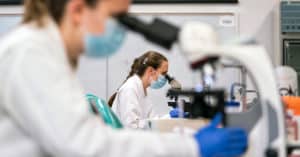
Bellarmine University will recruit and prepare highly qualified science and mathematics teachers for high-need Kentucky middle and high schools with the support of a five-year $1.45 million grant from the National Science Foundation’s Robert Noyce program.
The grant will support “Noyce Knights Scholars”— students who wish to teach in the STEM (science, technology, engineering and mathematics) areas of physics, chemistry, biology and mathematics.
23 Aug2022
By Nicole Dunn
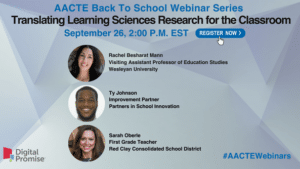
AACTE has teamed up with the leaders of Digital Promise’s Learner Variability Project to address systems-level transformation that directly addresses the challenges students face by using the Learner Variability Navigator (LVN); a free open-source tool to make learning sciences research accessible to educators. Earlier this year, a representative group of AACTE members were introduced to the project and navigation tools, and using their feedback, AACTE is pleased to bring you the webinar series that lifts up tools and practices with the Learner Variability Project most relevant to the educator preparation field.
22 Aug2022
By Natalie Khairallah
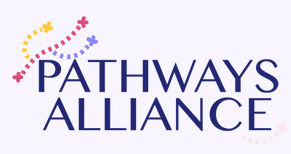 Teacher residency programs seek to offer an innovative approach to teacher certification, shifting the landscape of education to better recruit and retain high-quality teachers. These residencies can help attract a diverse pool of teachers — aiming to offset the shortage crisis and address the immediate staffing needs — by offering a supportive and affordable path to teaching.
Teacher residency programs seek to offer an innovative approach to teacher certification, shifting the landscape of education to better recruit and retain high-quality teachers. These residencies can help attract a diverse pool of teachers — aiming to offset the shortage crisis and address the immediate staffing needs — by offering a supportive and affordable path to teaching.
 AACTE’s Committee on Global Diversity is proud to host the University of Missouri-St Louis, College of Education, recipient of the 2022 AACTE Best Practice Award in Support of Global & International Perspectives. This award, sponsored by AACTE’s Committee on Global Diversity, recognizes exemplary practice in the intercultural, global, cross-cultural, and international arenas and is presented each year at AACTE’s Annual Meeting.
The College of Education at the University of Missouri-St. Louis launched a year-long effort to enhance the internationalizing of teacher preparation programs. The main objectives were to initiate a professional learning community centered on globally competent teaching, integrate global perspectives in teacher education programs, create and share globally infused curricula, and strengthen international partnerships. The project was a comprehensive approach targeting faculty, staff, and students. In this webinar, they will share four of the initiatives from their year.=
AACTE’s Committee on Global Diversity is proud to host the University of Missouri-St Louis, College of Education, recipient of the 2022 AACTE Best Practice Award in Support of Global & International Perspectives. This award, sponsored by AACTE’s Committee on Global Diversity, recognizes exemplary practice in the intercultural, global, cross-cultural, and international arenas and is presented each year at AACTE’s Annual Meeting.
The College of Education at the University of Missouri-St. Louis launched a year-long effort to enhance the internationalizing of teacher preparation programs. The main objectives were to initiate a professional learning community centered on globally competent teaching, integrate global perspectives in teacher education programs, create and share globally infused curricula, and strengthen international partnerships. The project was a comprehensive approach targeting faculty, staff, and students. In this webinar, they will share four of the initiatives from their year.=






 The National Association for Family, School, and Community Engagement (NAFSCE) is seeking proposals from educator preparation programs and their school and community partners to take part in the Family Engagement Educator Preparation Innovation Project.
The National Association for Family, School, and Community Engagement (NAFSCE) is seeking proposals from educator preparation programs and their school and community partners to take part in the Family Engagement Educator Preparation Innovation Project.  The U.S. Department of Education has announced new awards to help recruit, prepare, develop, and retain a strong, effective and diverse teacher workforce for classrooms across the country through the Teacher Quality Partnership (TQP) grant program. This year’s investment includes 22 new five-year grants totaling $24.8 million through its TQP program. The award recipients represent IHEs and national nonprofits, including three HBCUs and one MSI.
The U.S. Department of Education has announced new awards to help recruit, prepare, develop, and retain a strong, effective and diverse teacher workforce for classrooms across the country through the Teacher Quality Partnership (TQP) grant program. This year’s investment includes 22 new five-year grants totaling $24.8 million through its TQP program. The award recipients represent IHEs and national nonprofits, including three HBCUs and one MSI.






